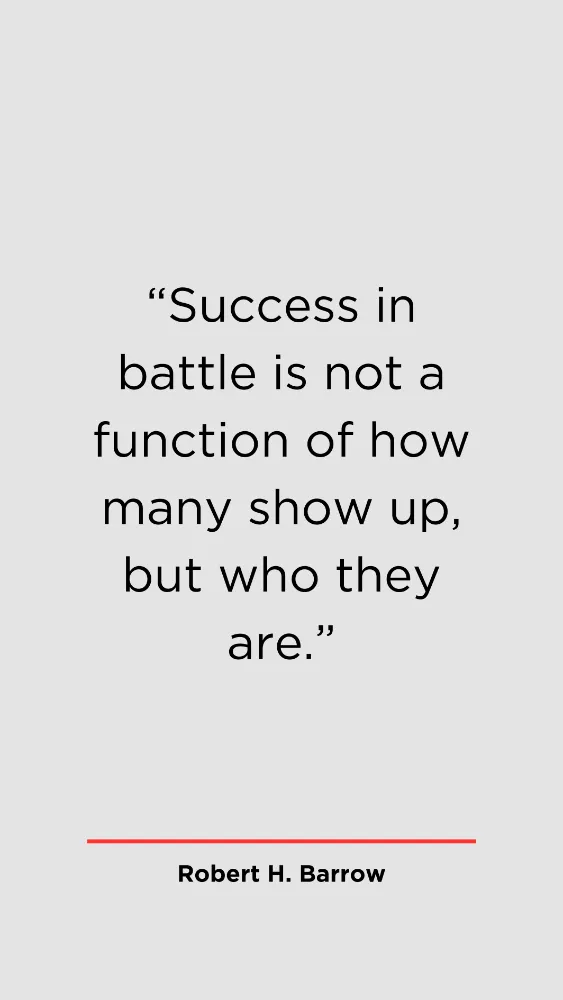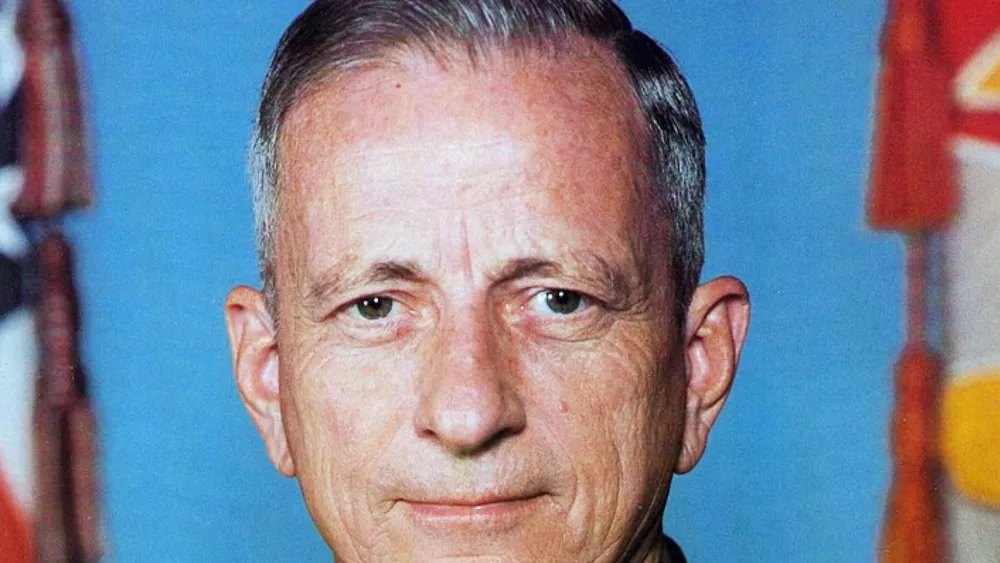Robert H. Barrow, affectionately known to many as “Bob,” was a man of exceptional character and unwavering dedication. Born on February 5, 1922, in the heart of Baton Rouge, Louisiana, he entered a world on the brink of significant change.
Little did anyone know that young Bob’s path would lead him on an extraordinary journey that would encompass not only academic excellence but also acts of valor on the battlefield and the highest echelons of leadership within the United States Marine Corps.
The Educational Journey of Robert H. Barrow
From his earliest days, Robert Barrow exhibited a rare curiosity and determination. His academic pursuits at Louisiana State University (LSU), where he majored in mechanical engineering, provided the foundation for his success.
However, his fateful decision to join the Marine Corps Reserve Officer Training Corps (ROTC) set him on a course of service that would shape his life.
Exploring Barrow’s Early Years
In the vibrant city of Baton Rouge, Louisiana, Robert H. Barrow grew up with a strong sense of community. He had a deep appreciation for his Southern roots during his early years.
His decision to attend Louisiana State University (LSU) was driven by a desire to pursue a degree in mechanical engineering, a testament to his intellectual curiosity and commitment to academic excellence.
It was during his time at LSU that the pivotal moment in Barrow’s life occurred—a moment that would forever alter his future trajectory. Joining the Marine Corps Reserve Officer Training Corps (ROTC) was a decision driven by circumstance, a burgeoning sense of duty, and a desire to serve his country.
Little did he realize then that this seemingly ordinary decision would set the stage for a lifetime of extraordinary service and leadership. As a young cadet in the Marine Corps ROTC, Barrow began to cultivate the core values of honor, courage, and commitment. So, it became the bedrock of his character.
This early exposure to the Marine Corps ethos ignited a passion for leadership and instilled in him the understanding that service to one’s nation is a noble calling.
Robert H Barrow and his Entry into World War II
As World War II engulfed the globe in a tempest of conflict, Robert’s sense of duty called him to the forefront of service. Nevertheless, he responded with great resolve, eager to contribute his skills and commitment to his country.
In 1942, Barrow’s journey took a decisive turn when he was commissioned as a second lieutenant in the United States Marine Corps. This momentous occasion marked the formal commencement of his military career, which would see him navigate the perilous waters of the Pacific theater.
Stationed in the Pacific theater, Barrow found himself amid history-altering battles that would test the mettle of his fellow Marines and his character. With its fierce combat, the Battle of Okinawa was a crucible in which Barrow’s leadership qualities began to emerge. Moreover, his tenacity and unwavering commitment to duty served as a source of inspiration to those who fought alongside him.
Following the crucible of Okinawa, Barrow’s path led him to the occupation of Japan. In this post-war phase, he played a crucial role in the complex process of rebuilding a nation.
Leadership in the Marine Corps
After the war, Barrow excelled in the Marine Corps, rising through the ranks and taking on increasingly challenging leadership roles. On the other hand, his dedication to the Corps and his exemplary performance led to various command assignments.
Including commanding officer of the 9th Marine Regiment and the 2nd Marine Division. In these positions, he proved himself as a capable and inspirational leader. So, Robert earned the respect of his peers and subordinates alike.
Perhaps one of the most notable aspects of Barrow’s leadership was his emphasis on the welfare of his Marines. He was known for his genuine concern for their well-being, whether better equipment, training or improved living conditions. Furthermore, this deep sense of duty and care for his Marines became a hallmark of his career.
Robert H Barrow on Shaping the Modern Marine Corps
In the annals of the United States Marine Corps, 1979 marked a historic moment as Robert H. Barrow ascended to the position of the 27th Commandant. So, this pinnacle of his career was not just a crowning achievement for the man himself. It is also a reflection of his profound impact on the Marine Corps throughout his illustrious journey.
As Commandant, Barrow faced many formidable challenges that tested his mettle and leadership acumen. Furthermore, like all branches of the military, the Marine Corps had to grapple with budget constraints. It became imperative to modernize and adapt to the changing geopolitical landscape.
Under his guidance, the Marine Corps navigated these challenges with agility and foresight. They ensure it remained a formidable and relevant force.
One of the hallmarks of Robert H. Barrow’s tenure as Commandant was his advocacy for the welfare of Marines. He also thought of the well-being of their families. His deep sense of responsibility toward those who served under his command manifested in tangible ways.
He tirelessly championed initiatives for improved housing, recognizing that comfortable and safe living conditions were essential to the well-being of Marines and their families.
The Lasting Impact of Robert H Barrow
Bob retired from the Marine Corps in 1983. Furthermore, he left behind a legacy of leadership, integrity, and service that inspires Marines today. He remained active in various military and community organizations. This includes serving on the board of trustees for The Basic School, where Marine officers receive their initial training.
Recognizing his outstanding contributions to the Marine Corps, the USS Robert H. Barrow (DDG-49), an Arleigh Burke-class guided-missile destroyer, was named in his honor. This ship continues to serve as a symbol of his enduring legacy.

The principles that Defined Robert H. Barrow
Robert H. Barrow’s experience was proof of the values of duty, honor, and service. From his early days as an ROTC cadet to his role as Commandant of the Marine Corps, he demonstrated unwavering dedication to his country and fellow Marines.
His legacy will live on thanks to the Marine Corps Marines who served under him and the innumerable others whose lives he touched. Moreover, the life of Robert H Barrow is a bright example of what may be accomplished through strong leadership, moral character, and devotion to duty.











